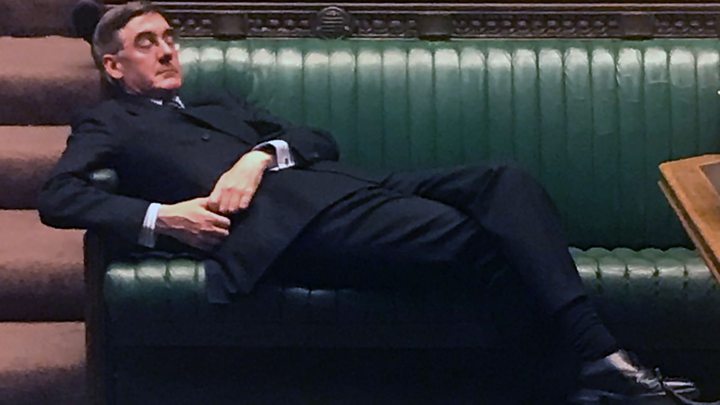By Seán Burns
With the threat of a no-deal Brexit and general election looming, the move to suspend Parliament by Boris Johnson was not a sign of strength for his government. It is reflective of the tenuous nature of his position and the scale of dissent inside the Tory Party. Unable to command a majority in Parliament for his Brexit plan, he must instead resort to archaic manoeuverings. The fact that Parliament can be suspended by a monarch – an unelected head of state – exposes the deeply undemocratic reality of the British state. However, rather than create a clear path, this is a measure which has further exacerbated instability and divisions amongst the political representatives of capitalism.
Economic crisis
The potential for British suppliers to face trade tariffs and have their access to European markets restricted is a nightmare scenario for the ruling class in Britain. Their cries over the protection of democracy, as shown by the editorials attacking Johnson in their “house journals”, The Economist and the Financial Times, are a thin veneer – scratch below the surface and you will find that their main concern is their own profits. Both the EU and the British capitalist class favour a deal but are stuck in a quagmire – unable to get Parliamentary support for a “Brexit in name only”, which would see Britain remain in the Customs Union and the Single Market. They are unable to move the situation forward in any substantive way. Meanwhile, the EU is not just contending with “Brexit Britain”, but looking over their shoulder to the rise of right-populist governments and forces elsewhere in the EU. To grant significant concessions to Britain could give confidence to other forces that would accelerate the breakup of the European project.
No hardening of borders
The issue of the so-called “Irish backstop” contained in Theresa May’s Withdrawal Agreement is the major sticking point in the negotiations around Brexit. Aimed at preventing a hard border in Ireland, this would see the UK effectively remain within the Customs Union indefinitely if no alternative trade arrangements could be found. Northern Ireland would remain closely tied to EU regulations, which could lead to increased non-customs checks on goods moving between the North and Britain. This has been staunchly opposed by hardline Tory Brexiteers, including Johnson, and by the DUP. A “no-deal” Brexit puts the question of a hard North-South border more firmly on the table. For most Catholics, this would be unacceptable. A hard border would embody the denial of their national aspirations, as well as creating real disruption to people’s lives. Conversely, a hardening East-West border would add to the sense among many Protestants that they are gradually being inched towards a united Ireland.
Either arrangement can inflame sectarian tensions. The trade union movement – representing the interests of workers from all backgrounds – must act independently to oppose any hardening of borders, to defend jobs and wages and to stand against sectarianism in the context of Brexit.
Class unity not “national” unity
The call has been raised for a so-called “national unity” caretaker government to block a no-deal Brexit. This would involve Labour, the Liberal Democrats, Tory rebels and the smaller pro-Remain parties. Corbyn has backed this proposal but Liberal Democrat leader Jo Swinson and other potential “allies” in this endeavour have opposed the idea that Corbyn would lead such a government. That she could stomach five years of coalition with the Tories, but not five weeks of Corbyn as Prime Minister illustrates clearly the class interests which she and her party represent.
However, even if he were nominally leader, Corbyn would be a prisoner within such a government, with the pro-capitalist Blairites who dominate his own Parliamentary Party among the jailers. He would not be able to articulate a position which represents the interests of the working class, but would be beholden to the dominant neo-liberal, pro-EU forces. Entering such an arrangement would also fundamentally damage him among working-class Leave voters, whom he must win support from if he is to form a majority government.
Rather than engaging in Parliamentary alliances with the right, Corbyn should put pressure on the Trades Union Congress to mobilise its members in support of the demand for an immediate general election and in support of his anti-austerity, left policies through mass demonstrations and industrial action. Combined with a vote of no confidence, this could force Johnson from power.
What programme is needed
However, as things stand, there is no guarantee that Corbyn would win such an election. He must put forward a clear programme which can speak to working-class voters, whether Leave or Remain. He must articulate a vision of an exit in the interests of the working-class majority from the EU, which would free a Corbyn-led Labour government from the EU’s restrictions of nationalisation, public spending and state intervention into the economy – which would act as a barrier to his policies – while guaranteeing workers’ rights, migrants’ rights, environmental safeguards, and so on.
Combined with demands for free education, a £10 minimum wage, massive investment in social housing and renewable energy, public ownership of key sectors of the economy, and other pro-working class measures, this could see him secure a majority in Parliament. Fighting for such a programme needs to be linked with an appeal to the working class and youth throughout Europe for a struggle to oppose the European Union and the various capitalist, pro-austerity governments that it is comprised of.
In order to be able to actually implement these policies, he will have to finish the civil war within Labour and decisively drive out the Blairites. Representing the neoliberal capitalist establishment, they have sought to sabotage him at every turn, and will continue to do so. Labour must be democratised from top to bottom to allow the membership to remove sitting Blairite MPs, and replace them with working-class representatives who will back Corbyn’s policies and a socialist programme for government.
For socialist change
The Brexit crisis reflects a clash between forces which represent varying capitalist interests – whether the hard-right Brexiteers, the neoliberal Remainers, the EU establishment or the Fine Gael government in the South. None stand for the interests of working-class people in Britain, Ireland or Europe. Under their control, any outcome will be arranged in the interests of big business, against ordinary people.
It is urgent that the working class puts its stamp on events, by mobilising independently and across borders in defence of our common interests, in opposition to the bosses and their political representatives. This can point the way towards the building of a socialist Europe, run in the interests of the millions, not the billionaires.












